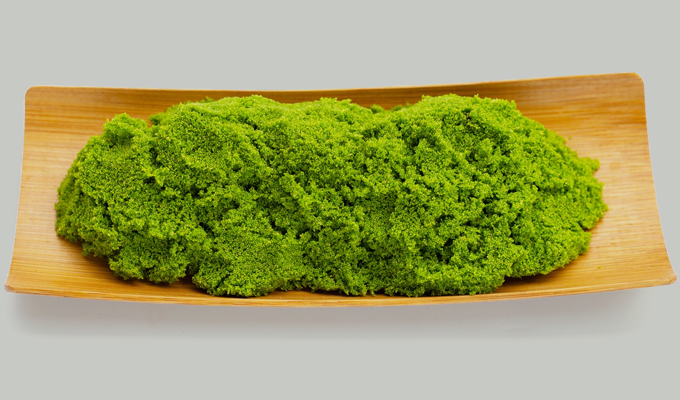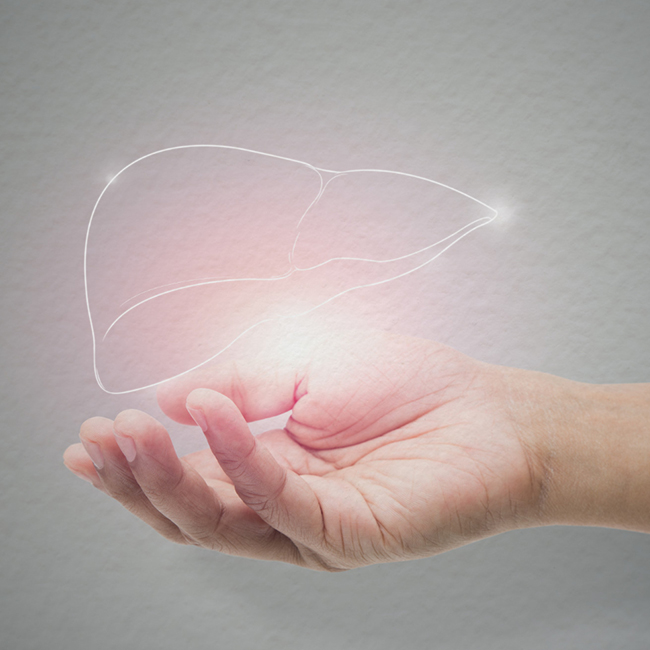Wolffia globosa
Health Benefits

Wolffia globosa, commonly known as watermeal, is a nutrient-rich aquatic plant gaining attention for its potential health benefits. This tiny plant is packed with essential nutrients, including high-quality protein, vitamins, minerals, and antioxidants, making it a valuable addition to various diets. In this comprehensive guide, we’ll explore how Wolffia globosa supports various parts and systems of the body.

Heart Health
Maintaining cardiovascular health is crucial for overall well-being, and Wolffia globosa offers several benefits in this regard. Rich in omega-3 fatty acids, this plant contributes to heart health by potentially reducing triglyceride levels and lowering blood pressure. Omega-3s are known to decrease the risk of arrhythmias (irregular heartbeats), which can lead to sudden cardiac death. Additionally, they may slow the buildup of atherosclerotic plaques, reducing the risk of heart attacks and strokes.
Beyond omega-3s, Wolffia globosa contains a variety of polyphenols—plant compounds with antioxidant properties. These antioxidants help combat oxidative stress, a key factor in the development of cardiovascular diseases. By neutralizing free radicals, polyphenols may prevent the oxidation of low-density lipoprotein (LDL) cholesterol, a process that contributes to plaque formation in arteries. Furthermore, the anti-inflammatory properties of polyphenols can reduce chronic inflammation, another risk factor for heart disease.
Incorporating Wolffia globosa into a balanced diet may thus support heart health by providing essential nutrients that promote healthy blood lipid levels, reduce inflammation, and protect against oxidative damage. However, it’s important to consume this plant as part of a varied diet rich in fruits, vegetables, whole grains, lean proteins, and healthy fats to achieve optimal cardiovascular benefits.
Brain Health
Cognitive function and brain health are areas in which growing concern exists, especially with the increasing prevalence of neurodegenerative diseases. Wolffia globosa offers nutrients that may support brain health through its bioactive forms of vitamin B12, a nutrient essential for neurological function. Vitamin B12 plays a critical role in the synthesis of myelin, the protective sheath around nerves, and in the production of neurotransmitters, which are vital for communication between nerve cells. Deficiency in vitamin B12 can lead to cognitive impairments and neurological disorders.
A study published in the journal Nutrients highlighted Wolffia globosa is a plant-based source of bioactive vitamin B12 that is well-absorbed in humans. This finding is particularly significant for individuals following plant-based diets, who may be at risk for vitamin B12 deficiency due to the vitamin’s scarcity in plant foods. By incorporating Wolffia globosa into their diets, such individuals can obtain this crucial nutrient from a natural, plant-based source.
Beyond its vitamin B12 content, Wolffia globosa is rich in polyphenols, which have been associated with neuroprotective effects. These compounds may help reduce oxidative stress and inflammation in the brain, potentially slowing age-related cognitive decline. While more research is needed to fully understand the impact of Wolffia globosa on brain health, its nutrient profile suggests it could be a valuable component of a diet aimed at supporting cognitive function.
Eye Health
Vision represents one of our most vital senses, and maintaining eye health is essential for quality of life. Wolffia globosa contains several nutrients that are beneficial for the eyes, including vitamin A and carotenoids such as lutein and zeaxanthin. Vitamin A is crucial for maintaining the health of the cornea, the eye’s outermost layer. It is also a component of the rhodopsin, a protein in the eyes that allows us to see in low-light conditions. Deficiency in vitamin A can lead to night blindness and other visual impairments.
Lutein and zeaxanthin are antioxidants that accumulate in the retina, particularly in the macula, which is responsible for central vision. These carotenoids help filter harmful high-energy blue wavelengths of light and protect the eye tissues from oxidative damage. Studies have shown that adequate intake of lutein and zeaxanthin is associated with a reduced risk of age-related macular degeneration (AMD) and cataracts. Through its provision of these essential nutrients, Wolffia globosa may contribute to the maintenance of good vision. Additionally, it supports overall eye health through its comprehensive nutrient profile.

Skin Health
Maintaining healthy skin involves proper nutrition, and Wolffia globosa offers several components, that support skin health. This plant is rich in antioxidants, including vitamins C and E, which play a role in protecting the skin from oxidative stress caused by free radicals, which can lead to premature aging, characterized by wrinkles, fine lines, and loss of skin elasticity.
Vitamin C is essential for the synthesis of collagen, a protein that provides structure and elasticity to the skin. Adequate collagen production helps maintain firm and youthful-looking skin. Additionally, vitamin E functions as a lipid-soluble antioxidant that protects cell membranes from oxidative damage. Together, these vitamins help maintain the skin’s integrity and appearance.
Furthermore, the anti-inflammatory properties of the polyphenols found in Wolffia globosa may help alleviate skin conditions characterized by inflammation, such as acne and eczema. By reducing inflammation and oxidative stress, incorporating this plant into the diet could contribute to skin health by promoting better cellular repair, enhanced protection against environmental damage, and improved overall skin resilience.

Liver Health
The liver is a vital organ responsible for detoxification, metabolism, and regulation of various biochemical processes essential for health, and emerging research suggests that incorporating Wolffia globosa into one’s diet may offer significant benefits for liver health.
One notable study investigated the effects of a green Mediterranean diet, enriched with Wolffia globosa, on liver fat content. Conducted over an 18-month period, the randomized controlled trial, which included participants with abdominal obesity or dyslipidemia, revealed that those adhering to the Wolffia globosa-enriched diet experienced a substantial reduction in hepatic fat compared to control groups. This reduction in liver fat is particularly significant, as excessive hepatic fat accumulation is a hallmark of non-alcoholic fatty liver disease (NAFLD), a condition that can progress to more severe liver disorders if left unaddressed.
The hepatoprotective effects of Wolffia globosa may be attributed to its rich composition of polyphenols and antioxidants. These bioactive compounds have anti-inflammatory and antioxidative properties, which can mitigate oxidative stress and inflammation, both key contributors to liver damage and disease progression. By neutralizing free radicals and reducing inflammatory responses, the antioxidants in Wolffia globosa help protect liver cells from damage.
The high-quality protein content in Wolffia globosa contributes to overall metabolic health. Adequate protein intake supports the maintenance of lean body mass and metabolic functions, while dietary fiber aids in regulating blood sugar levels and lipid profiles. These improved metabolic parameters can alleviate the burden on the liver, promoting its health and functionality.

Digestive System
A well-functioning digestive system is fundamental to overall health, as it ensures the effective breakdown and absorption of nutrients while eliminating waste products. Wolffia globosa contributes positively to digestive health through several mechanisms.
Wolffia globosa is rich in dietary fiber, which plays a crucial role in maintaining digestive health. Adequate fiber intake promotes regular bowel movements, preventing constipation and supporting a healthy colon. Fiber also adds bulk to the stool, facilitating its passage through the digestive tract and reducing the risk of gastrointestinal disorders. Studies evaluating the nutritional quality of Wolffia globosa have found that its high dietary fiber content significantly enhances its potential as a functional food ingredient, offering a rich nutrient profile beneficial for digestive health.
Beyond its fiber content, Wolffia globosa may act as a prebiotic, providing substances that feed beneficial gut bacteria. A balanced gut microbiome is essential for optimal digestion and overall health. Research indicates that fermentation of Wolffia globosa by gut microbiota leads to the production of short-chain fatty acids (SCFAs) and phenolic metabolites. These compounds support gut health by nourishing colonocytes, reducing inflammation, and enhancing the gut barrier function. Studies have demonstrated that Wolffia globosa significantly stimulates the production of these beneficial metabolites, suggesting its role in promoting a healthy gut microbiome.
Experience the Wolffia Difference Today!
Elevate your nutrition and join the sustainable food revolution with our premium dried Wolffia. Packed with protein, vitamins, and minerals, it’s the perfect addition to your healthy lifestyle. Easy to use and versatile, Wolffia effortlessly integrates into your favorite recipes.
Conclusion
Incorporating Wolffia globosa into your diet can provide significant nutritional benefits through its high-quality protein, essential vitamins, and minerals. This nutrient-rich aquatic plant supports overall well-being by enhancing immune function, aiding in weight management, and potentially reducing the risk of cardiovascular diseases by improving cholesterol levels. Additionally, its bioavailable vitamin B12 content makes it particularly valuable for preventing deficiencies, especially in plant-based diets.
References
1.Wolffia globosa nutrient composition and vitamin B₁₂ bioavailability
Appenroth, K. J., Sree, K. S., Bog, M., Ecker, J., Böhm, V., Lorkowski, S., Sommer, K., Vetter, W., Tolzin‐Banasch, K., Kirmse, R., et al. (2018). Nutritional value of the duckweed species of the genus Wolffia (Lemnaceae) as human food. Frontiers in Chemistry, 6, 483. https://doi.org/10.3389/fchem.2018.00483
2.Bioactive vitamin B₁₂ in Wolffia globosa (Mankai)
Sela, I., Yaskolka Meir, A., Brandis, A., Krajmalnik‐Brown, R., Zeibich, L., Chang, D., Dirks, B., Tsaban, G., Kaplan, A., Rinott, E., Zelicha, H., Arinos, S., Ceglarek, U., Isermann, B., Lapidot, M., Green, R., & Shai, I. (2020). Wolffia globosa–Mankai plant‐based protein contains bioactive vitamin B12 and is well absorbed in humans. Nutrients, 12(10), 3067. https://doi.org/10.3390/nu12103067
3.Determination of vitamin B₁₂ compounds in foods
Watanabe, F., Yabuta, Y., Tanioka, Y., & Bito, T. (2013). Biologically active vitamin B12 compounds in foods for preventing deficiency among vegetarians and elderly subjects. Journal of Agricultural and Food Chemistry, 61(28), 6769–6775. https://doi.org/10.1021/jf401545z
4.Clinical trial evaluating Wolffia globosa’s metabolic effects
Zelicha, H., Kaplan, A., Yaskolka Meir, A., Tsaban, G., Rinott, E., Shelef, I., Tirosh, A., Brikner, D., Pupkin, E., Qi, L., Thiery, J., Stumvoll, M., Kloting, N., von Bergen, M., Ceglarek, U., Blüher, M., Stampfer, M. J., & Shai, I. (2019). The effect of Wolffia globosa Mankai, a green aquatic plant, on postprandial glycemic response: A randomized crossover controlled trial. Diabetes Care, 42(7), 1162–1169. https://doi.org/10.2337/dc18-2319
5.Omega-3 fatty acids and cardiovascular benefits
Mozaffarian, D. (2007). Dietary and policy priorities for cardiovascular disease, diabetes, and obesity: A comprehensive review. Circulation, 115(25), 3213–3221. https://doi.org/10.1161/CIRCULATIONAHA.106.176158
6.Carotenoids for eye health
Ma, L., & Lin, X. M. (2010). Effects of lutein and zeaxanthin on aspects of eye health. Journal of the Science of Food and Agriculture, 90(1), 2–12. https://doi.org/10.1002/jsfa.3697
7.Vitamin C’s role in skin health
Pullar, J. M., Carr, A. C., & Vissers, M. C. M. (2017). The roles of vitamin C in skin health. Nutrients, 9(8), 866. https://doi.org/10.3390/nu9080866
8.Dietary fiber and digestive health
Slavin, J. L. (2013). Fiber and prebiotics: Mechanisms and health benefits. Nutrients, 5(4), 1417–1435. https://doi.org/10.3390/nu5041417
Our Blogs
Experience the Wolffia Difference Today!
Elevate your nutrition and join the sustainable food revolution with our premium dried Wolffia. Packed with protein, vitamins, and minerals, it’s the perfect addition to your healthy lifestyle. Easy to use and versatile, Wolffia effortlessly integrates into your favorite recipes.







